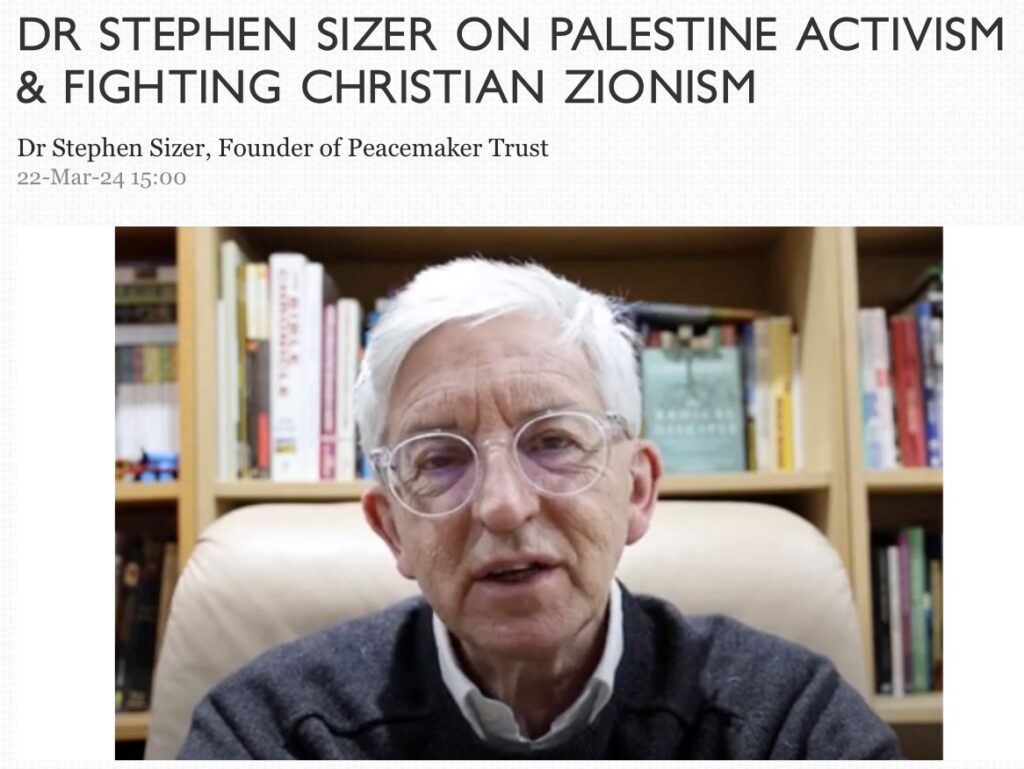
A revealing interview with Dashran Yohan recorded for BFM Media in Malaysia about the source of my commitment to peacemaking and some of the challenges faced along the way…
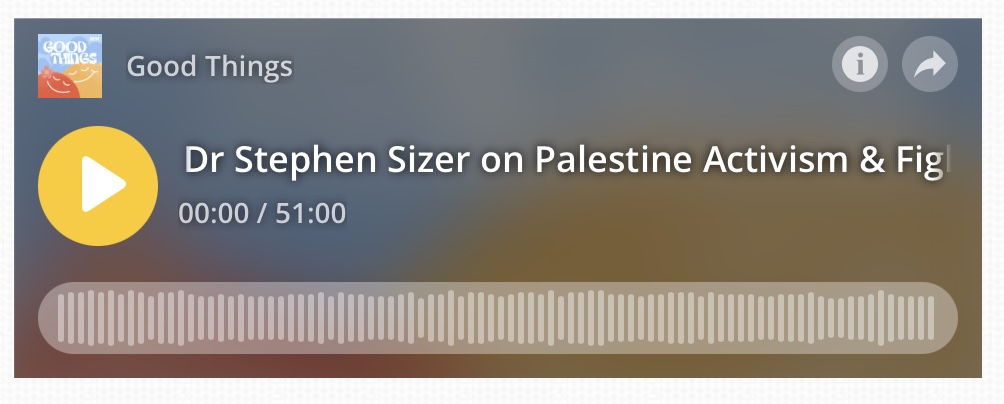
https://www.bfm.my/podcast//good-things/the-priest-whos-banned-from-serving


A revealing interview with Dashran Yohan recorded for BFM Media in Malaysia about the source of my commitment to peacemaking and some of the challenges faced along the way…

https://www.bfm.my/podcast//good-things/the-priest-whos-banned-from-serving
An interview with Garth Hewitt on what is happening in Gaza, his numerous visits to Gaza and the context for his song ‘The Broken Heart of Gaza’ which has now been revised to include the word genocide.
Garth was inspired to write the song by Father Manuel Musallam, the Parish Priest of Gaza, who had written to the wider Church of God. His letter was made public in January 2009.
‘Father Musallam’s letter inspired me with its great beauty and reminds me so strongly of a New Testament Epistle’ Garth Hewitt
View Garth singing the song on Youtube here
For more information on Garth’s songs and books – visit the Garth Hewitt Foundation
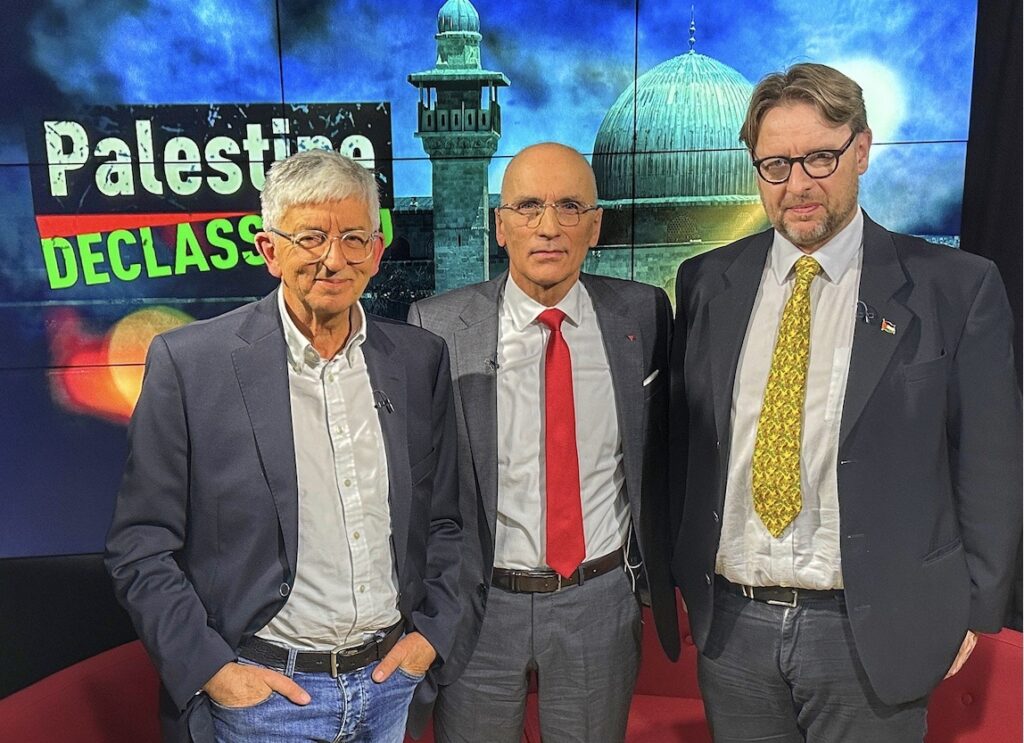
Jesus of Palestine: In conversation with Chris Williamson and David Miller on Palestine Declassified for Press TV. View the interview here:
What’s your view on Jesus’ politics?
In his first sermon Jesus announced his political agenda.
“The Spirit of the Lord is on me,
because he has anointed me
to proclaim good news to the poor.
He has sent me to proclaim freedom for the prisoners
and recovery of sight for the blind,
to set the oppressed free, to proclaim the year of the Lord’s favour.”
Then he rolled up the scroll, gave it back to the attendant and sat down. The eyes of everyone in the synagogue were fastened on him. 21 He began by saying to them, “Today this scripture is fulfilled in your hearing.” (Luke 4:18-21; Isaiah 61:1-2)
The prophet Isaiah is referring to the coming of the Messiah to announce the Year of Jubilee (which occurred every 50 years). When debts were cancelled, all slaves were freed and any property sold was returned to each family. It was intended to avoid extremes of wealth and poverty, and ensure justice, liberty, and equality. Jesus insists the Jubilee had come because the Sovereign King had now arrived. Jesus political agenda therefore was to transform a deeply divided and unjust world and bring liberty, equality and fraternity, in a right relationship with the one true God and one another. Although this will ultimately only be fully realised in heaven, we get to demonstrate a foretaste by the way we treat one another.
Continue readingIt was a delight to attend the 50th anniversary Greenbelt Festival held at Boughton House, near Kettering in August. I was part of the Israeli Committee Against House Demolitions (ICAHD) team sharing a marquee with the Action around Bethlehem Children with Disability (ABCD). During the Bank Holiday weekend, I interviewed several speakers and participants.
Daniel Munayer is the Executive Director of Musalaha, a faith-based organization that teaches, trains and facilitates reconciliation mainly between Israelis and Palestinians from diverse ethnic and religious backgrounds, and also international groups, based on biblical principles of reconciliation. Daniel spoke at Greenbelt sponsored by Embrace the Middle East. In this short interview he shares his vision for the future in Palestine.
Linda Ramsden is the founder and director of the Israeli Committee Against House Demolitions(ICAHD UK) which is dedicated to resisting apartheid and building a shared democracy from the River Joran to the Mediterranean Sea.
Continue reading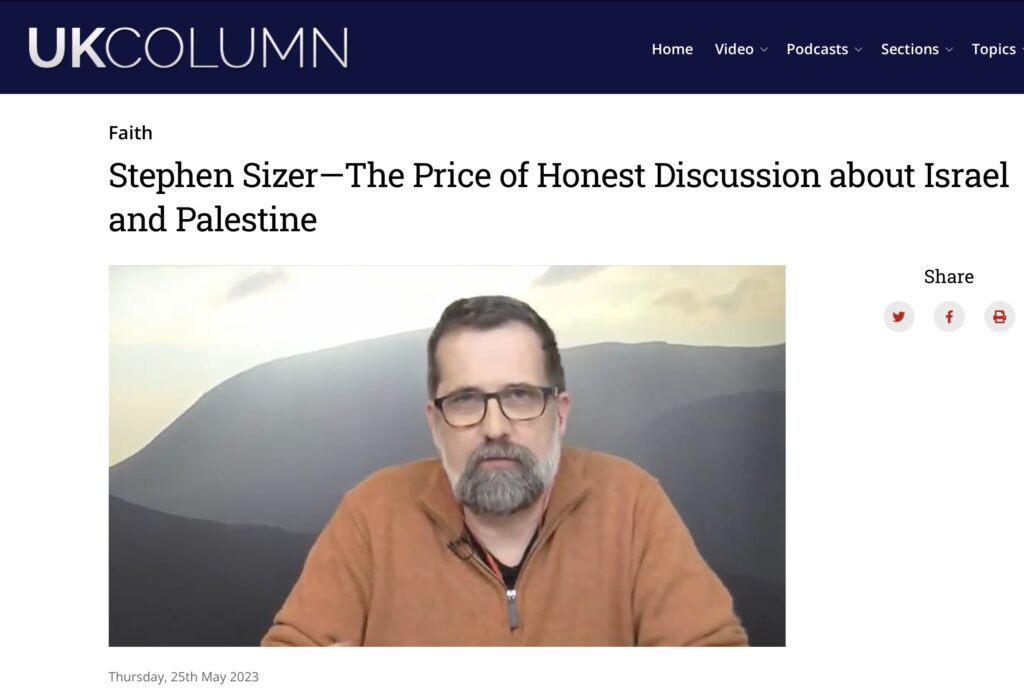
View the interview here
Mark is Executive Director, Kairos USA and Research Fellow in Systematic Theology and Ecclesiology, Stellenbosch University.
These are the questions asked in our interview (paraphrased):
How do we reconcile the biblical texts promising the land to the descendants of Abraham with the call of the Palestinian Christians for sharing the land of Palestine?
The modern Jewish Zionist program calls the land “Israel.” And the settler movement, with the support of the Israeli government, is committed to Jewish hegemony over the entire land from the river to the sea (indeed, from the Nile to the Euphrates!). They justify this biblically. Is this claim consistent with biblical promises?
Is it theologically sound to use the Bible to argue land claims and human rights issues of equality? How do we read the Bible today confronting issues of racism and colonialism? What does Jesus have to say about this?
Christian Zionism provides the basis for many Christians’ commitment to and activity in support of the State of Israel. It is also being challenged, as biblically erroneous, theological unsound, and unacceptable on moral grounds. Is it Biblical? Indeed, what is its provenance with respect to the political and historical contexts in which it was conceived, took shape, and has been applied, right up to the present day?
Visit Kairos USA
Visit Kairos Palestine
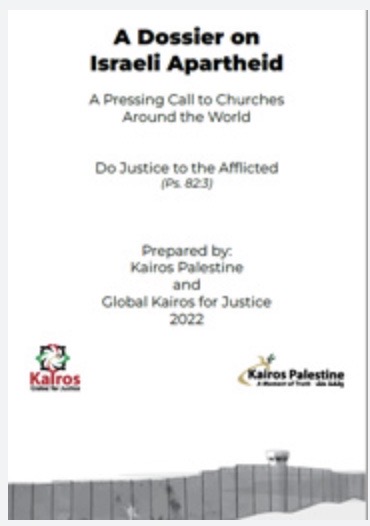
A Dossier on Israeli Apartheid: A Pressing Call to Churches Around the World
We, members of Kairos Palestine and Global Kairos for Justice, have created a theological study for Christians and other civil society organizations who want to learn more about the crime of apartheid and why Palestinians and a growing number of churches and human rights organizations are using the word to describe Israel’s oppression of Palestinians.
An interview with Zeinab Al Saffar on Al Mayadeen TV, an independent pan-Arab satellite television channel based in Lebanon.
In this interview Jonathan Coulter explains the work of CAMPAIN and reasons for their recent Open Letter to the Archbishops of Canterbury and York.
You can read and sign the Open Letter here
Background to the Open letter:
Jonathan’s article “What is Wrong with the the IHRA working definition of antisemitism?“
View other YouTube interviews here
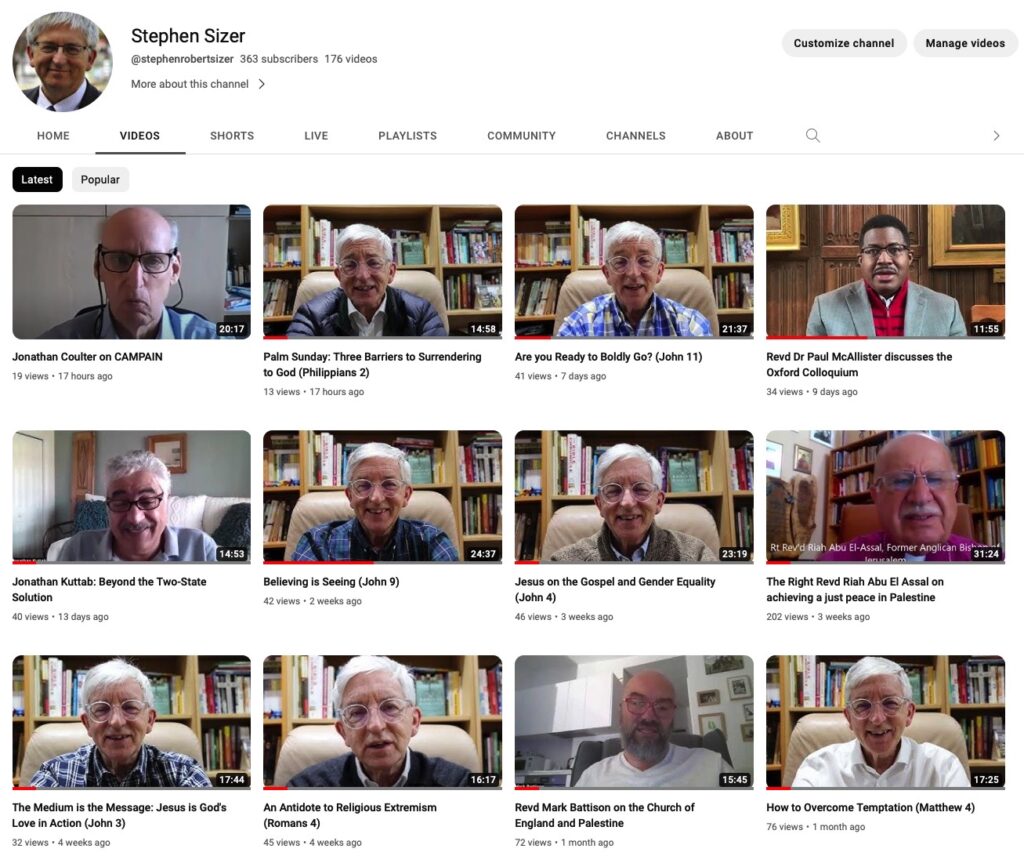
‘Beyond the Two-State Solution’, by Jonathan Kuttab, is a short introduction to the ongoing crisis in the Palestinian-Israeli conflict. Zionism and Palestinian Nationalism have been at loggerheads for over a century. Some thought the two-state solution would resolve the conflict between them. Kuttab explains that the two-state solution (that he supported) is no longer viable.
Continue reading